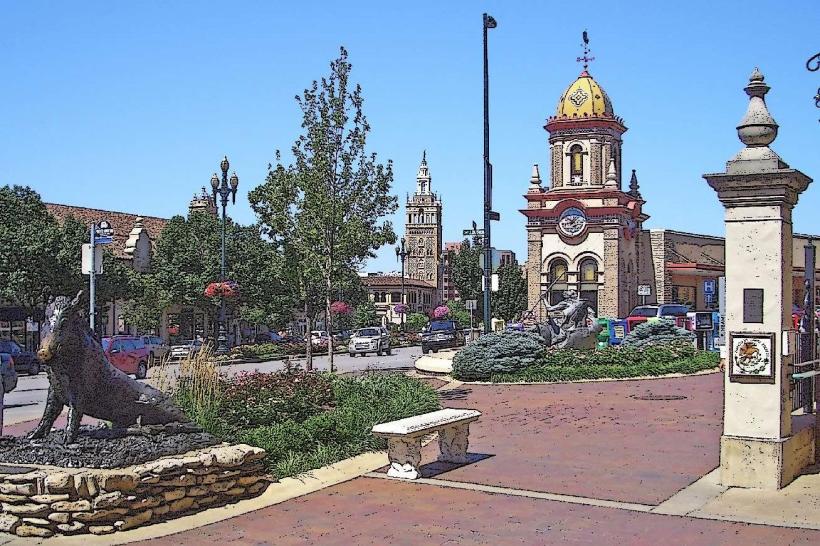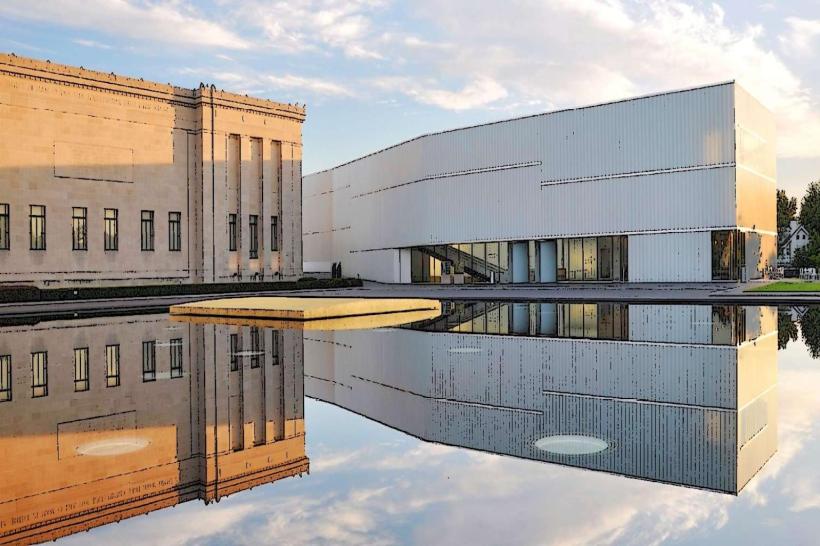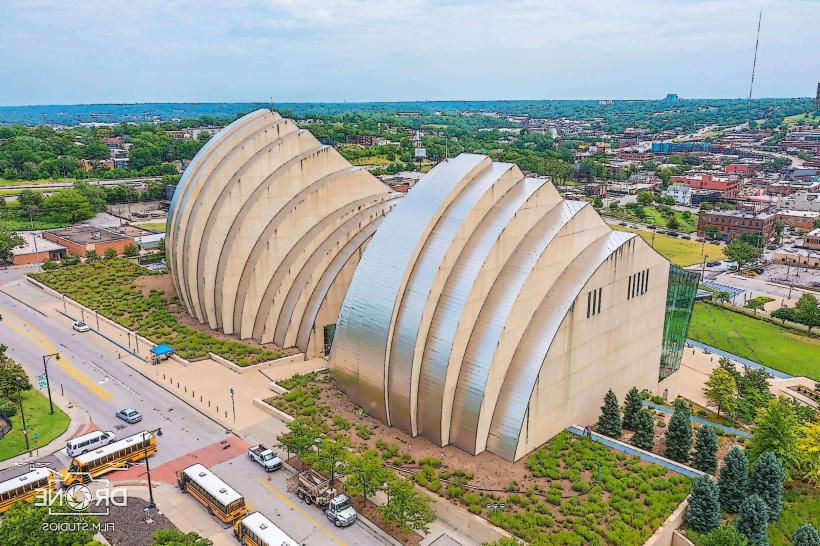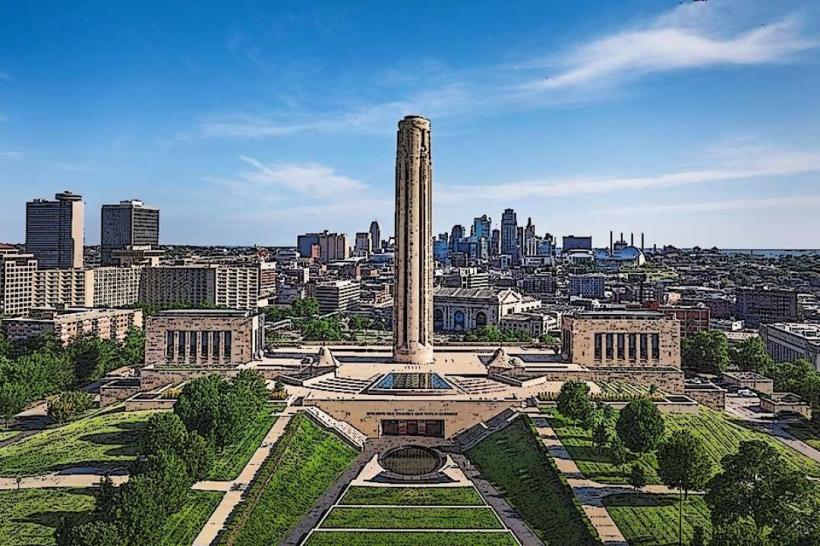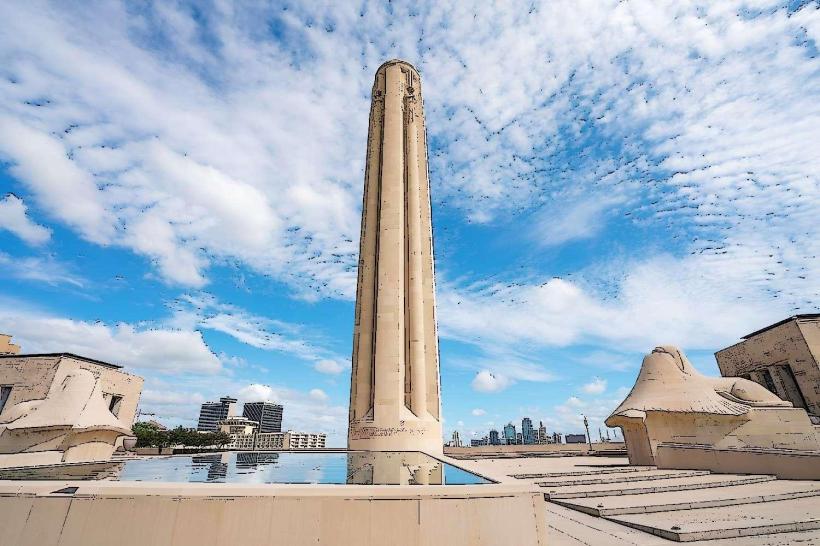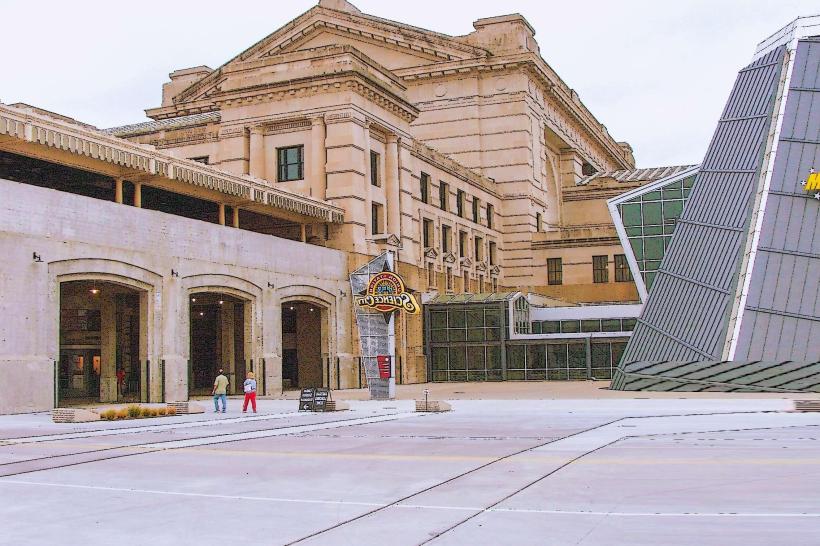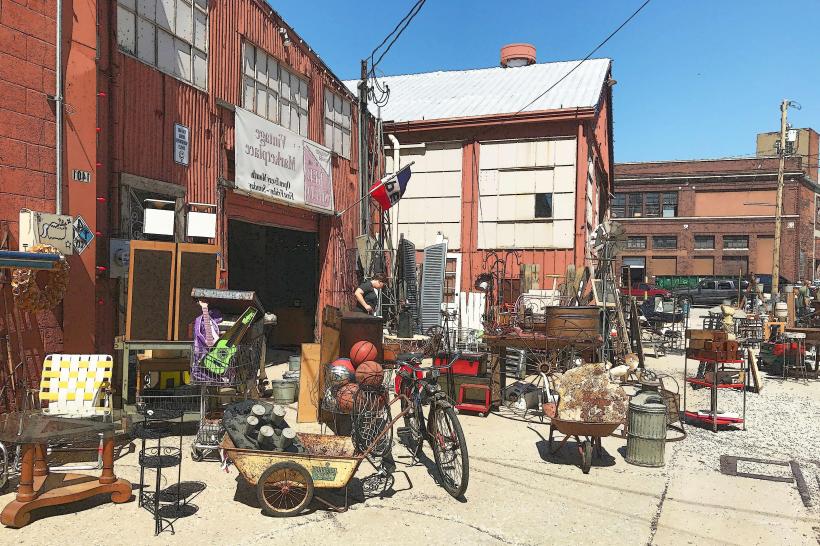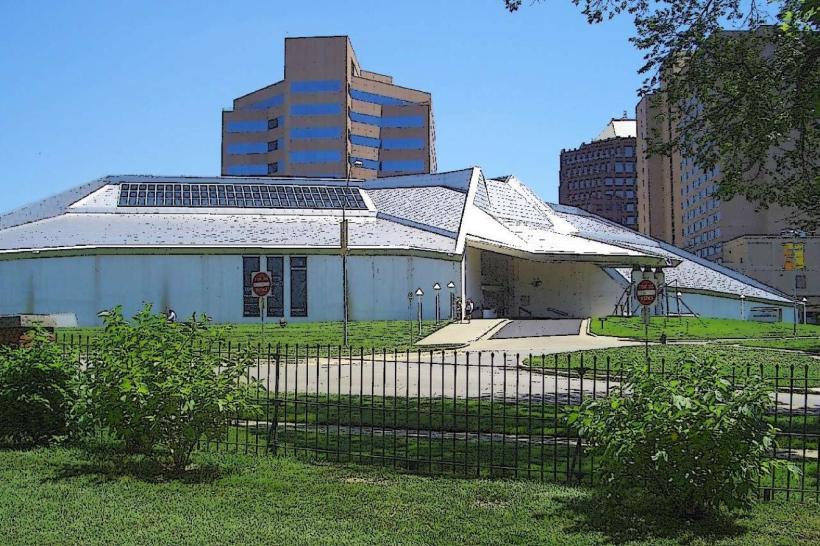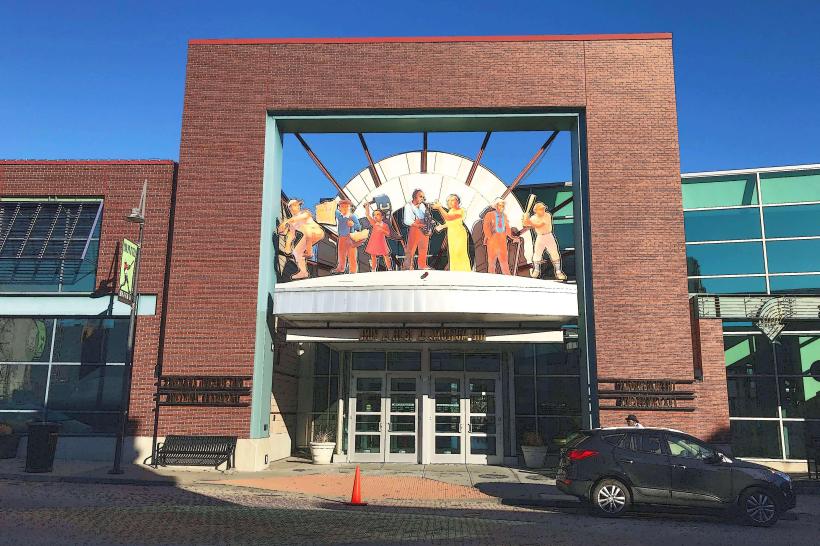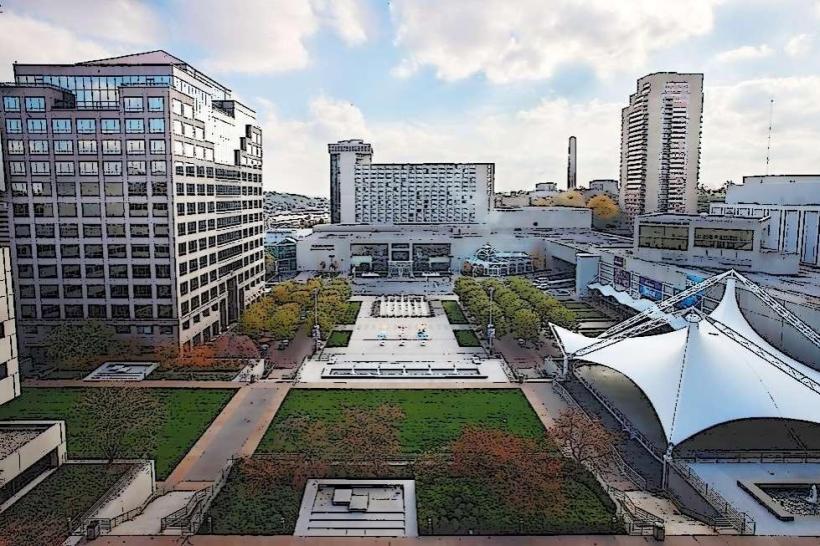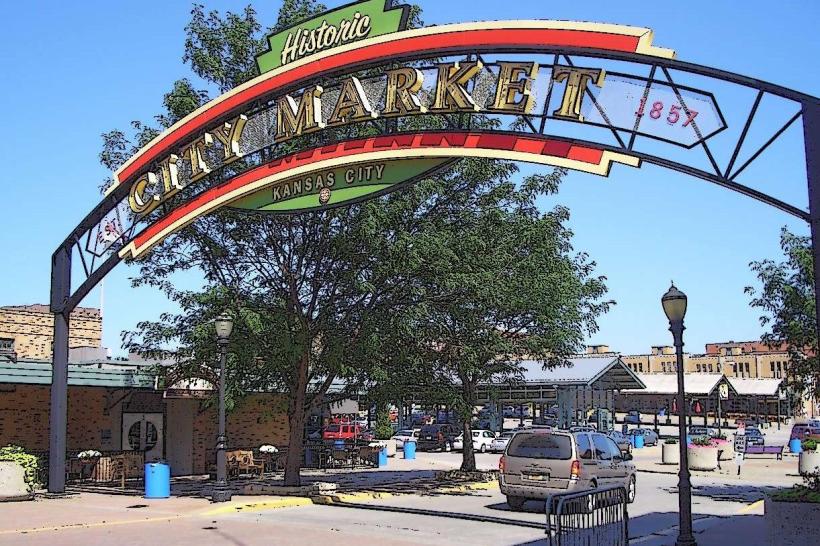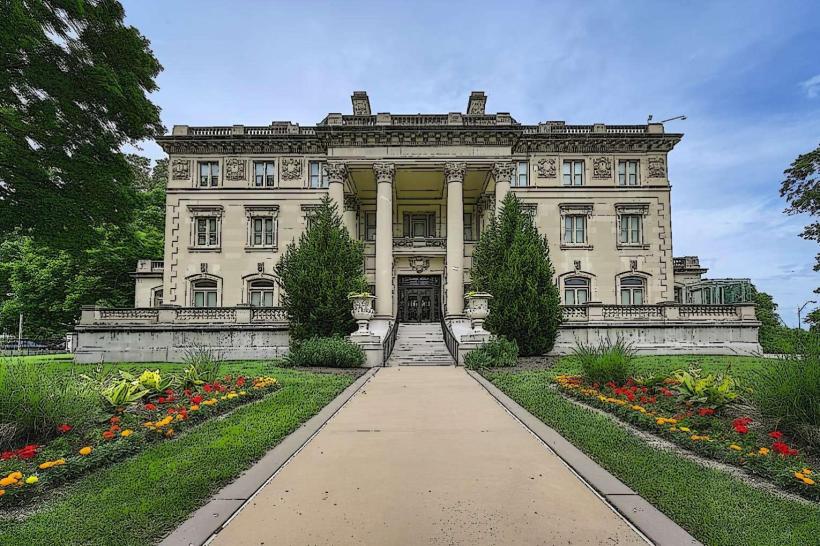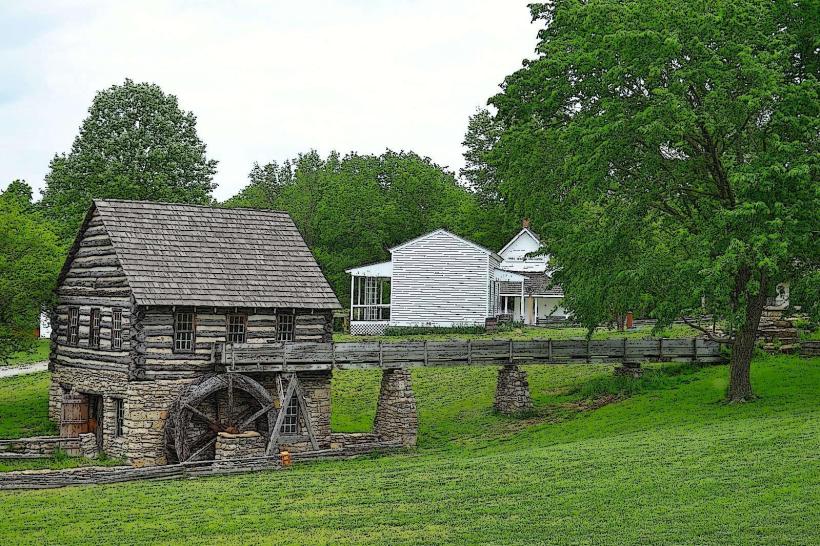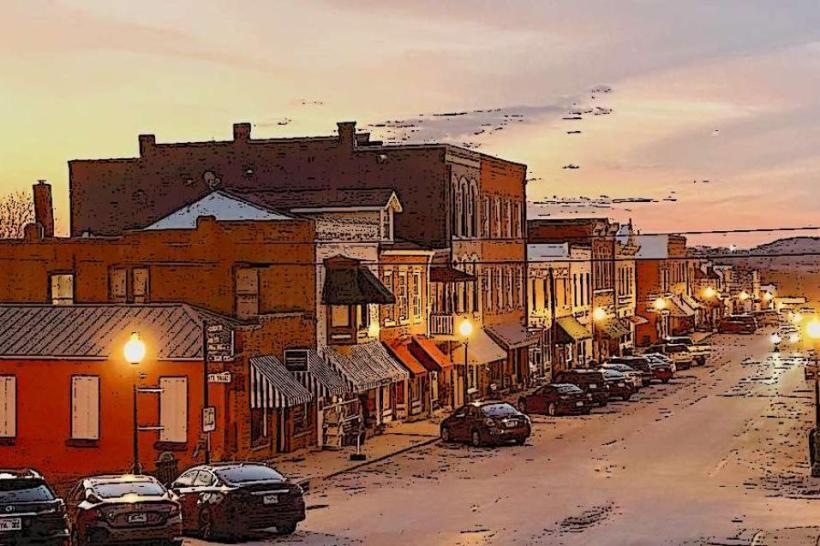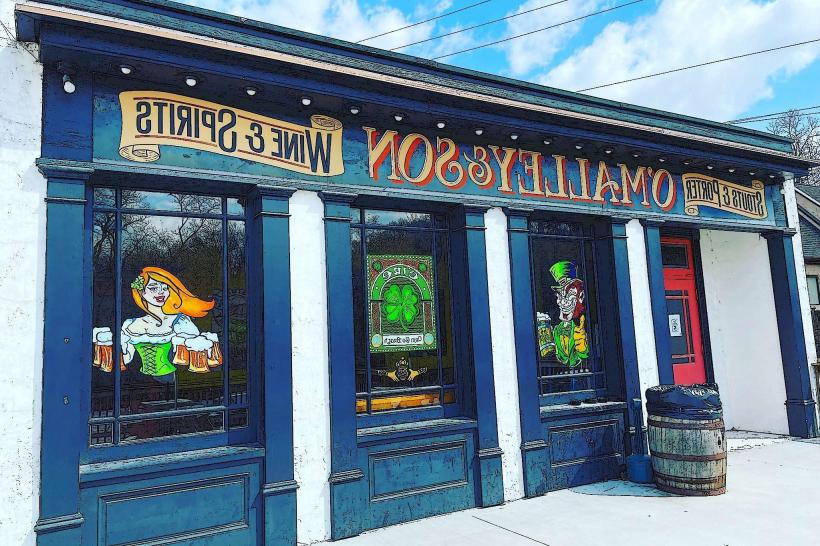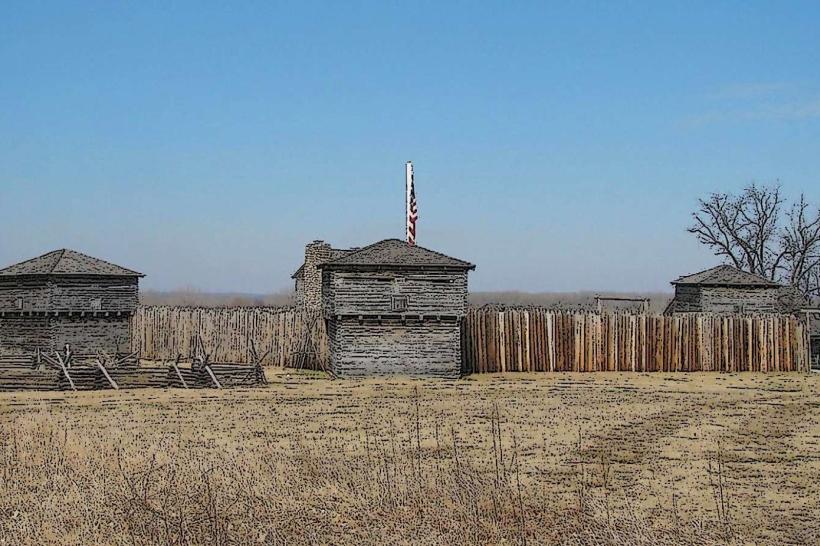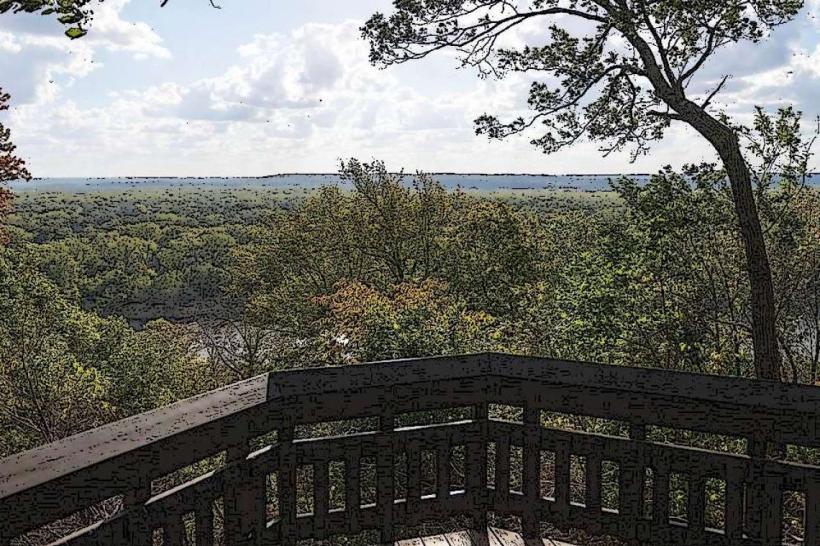Information
Landmark: Excelsior Springs Historic DistrictCity: Kansas City
Country: USA Missouri
Continent: North America
Excelsior Springs Historic District, Kansas City, USA Missouri, North America
The Excelsior Springs Historic Districts in Excelsior Springs, Missouri, collectively preserve the city’s rich legacy as a premier mineral water health resort and a thriving community from the late 19th through the mid-20th century. These districts encompass a variety of architectural styles, historic buildings, and culturally significant sites that reflect Excelsior Springs’ evolution as a wellness destination and its broader social and economic development.
Historical Context
Excelsior Springs gained prominence in the late 1800s due to its naturally occurring mineral springs, which were believed to have therapeutic properties. People from across the United States traveled here seeking cures for ailments, making the city a bustling health resort town. The booming mineral water industry spurred rapid growth, leading to the construction of hotels, bathhouses, residential neighborhoods, and commercial buildings designed to accommodate visitors and residents alike.
Key Historic Districts
Hall of Waters Historic District
The Hall of Waters Historic District centers around the Hall of Waters building, a striking example of Art Deco architecture completed in 1937 as part of a Public Works Administration project during the New Deal era. This iconic structure served as the heart of the city’s mineral water bottling operations and a spa offering therapeutic treatments.
The Hall of Waters building itself is an architectural and historical landmark, featuring clean geometric lines, decorative motifs, and a commanding presence along East Broadway. Inside, visitors once received water treatments, consultations, and purchased bottled mineral water, which was shipped nationally. Today, the building functions as the city’s administrative offices but remains a testament to Excelsior Springs’ heyday as a wellness destination.
Surrounding the Hall of Waters are other period structures tied to the city’s mineral water heritage, contributing to the district’s designation on the National Register of Historic Places.
Elms Historic District
The Elms Historic District developed primarily as a residential neighborhood serving the Elms Hotel, one of the city’s premier resorts founded in 1888. This district features a charming mix of architectural styles, including Gothic Revival, Tudor Revival, and Craftsman Bungalows, many built to house the families of hotel staff, permanent residents, and some guests who preferred longer stays.
The Elms Hotel itself is a centerpiece of the district, historically known for its elegant accommodations, grand ballroom, and role as a social and cultural hub. It hosted numerous dignitaries, including President Harry S. Truman. The hotel has undergone restoration to preserve its historical character while continuing to operate as a resort and spa.
The surrounding neighborhood streets are lined with well-preserved homes and buildings that collectively tell the story of a thriving community built around health tourism and leisure.
Boarding House Historic District
Closer to downtown, the Boarding House Historic District comprises numerous boarding houses, apartments, and small hotels constructed between the late 19th and early 20th centuries. These buildings reflect Excelsior Springs’ response to the influx of visitors seeking mineral water cures, providing affordable, temporary accommodations.
Architecturally, the district includes modest two- and three-story brick and wood-frame buildings with simple but distinct details reflective of the period’s vernacular styles. The district illustrates how the city adapted its built environment to meet the booming demand during its resort peak.
Notable Landmarks
The Elms Hotel and Spa: A historic luxury hotel that has operated since the late 1800s, embodying the city’s resort identity. Its grand architecture and continued operation make it a vital cultural and economic asset.
Hall of Waters: Beyond its Art Deco architecture, this building symbolizes the height of Excelsior Springs’ mineral water industry and federal investment in public health infrastructure during the 1930s.
Clay County State Bank Building: Built in 1894, this building is recognized for its architectural significance and currently houses the Excelsior Springs Museum and Archives, which preserves local history and artifacts.
Visitor Experience and Exploration
Visitors exploring the historic districts can enjoy self-guided walking tours that highlight key buildings, architectural details, and historical anecdotes that bring the city’s health resort era to life. The Excelsior Springs Museum and Archives serves as an educational hub offering exhibits on the city’s mineral waters, local history, and cultural heritage.
The preserved streetscapes provide a tangible sense of place, where visitors can imagine the bustling resort activity of the past alongside charming residential neighborhoods. The city’s commitment to historic preservation ensures that many original structures remain intact, maintaining the authenticity of the experience.
Architectural and Cultural Legacy
The Excelsior Springs Historic Districts collectively showcase a range of architectural styles popular from the late 1800s through the early 20th century, including Victorian, Gothic Revival, Tudor Revival, and Craftsman. These styles are manifested in public buildings, hotels, boarding houses, and private residences.
Culturally, the districts reflect Excelsior Springs’ unique position as a center for health tourism and community life built around natural mineral springs. They tell stories of visitors seeking health and relaxation, local entrepreneurs capitalizing on the mineral water craze, and residents whose lives intertwined with the city’s resort identity.
Summary
The Excelsior Springs Historic Districts offer a comprehensive window into a distinctive chapter of Missouri’s history. Through preserved architecture, landmark buildings like the Hall of Waters and the Elms Hotel, and historically significant neighborhoods, the districts embody the city’s legacy as a renowned mineral water health resort. They provide visitors with rich insights into the social, economic, and cultural forces that shaped Excelsior Springs and continue to influence its character today.


